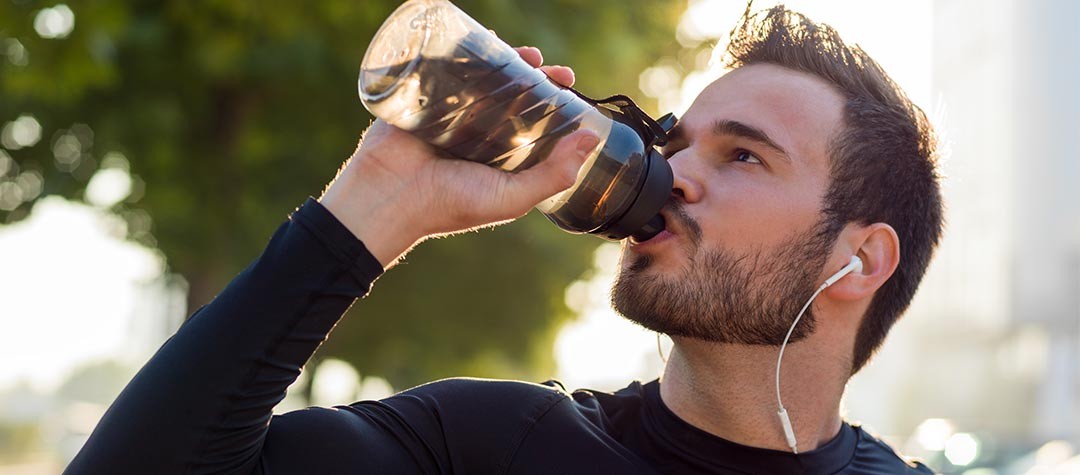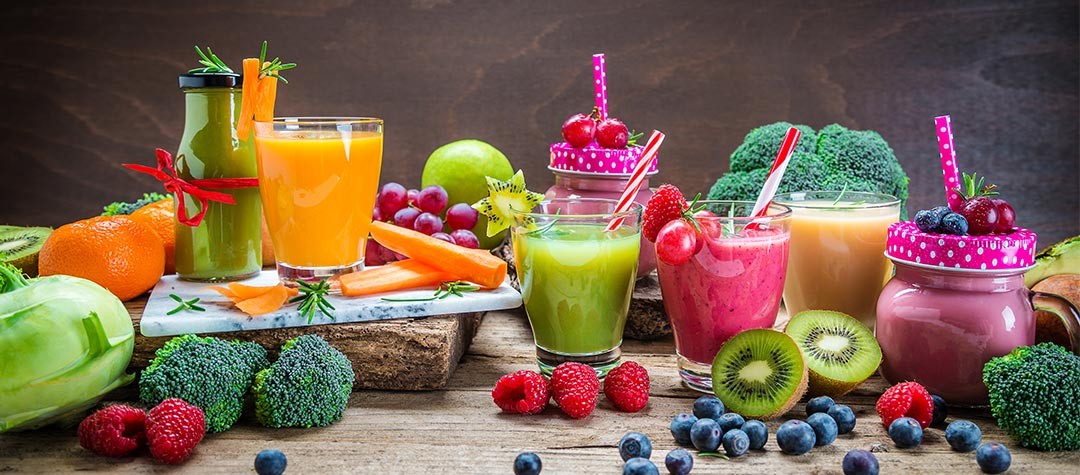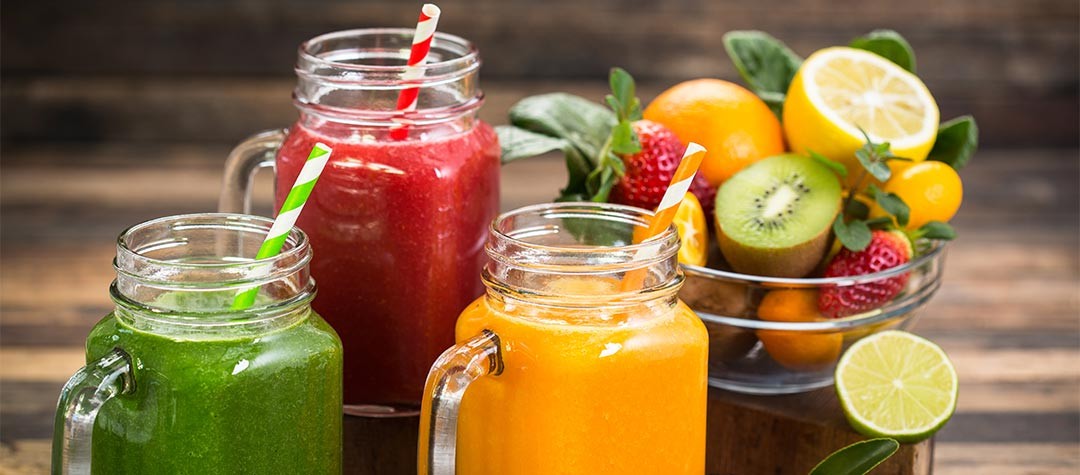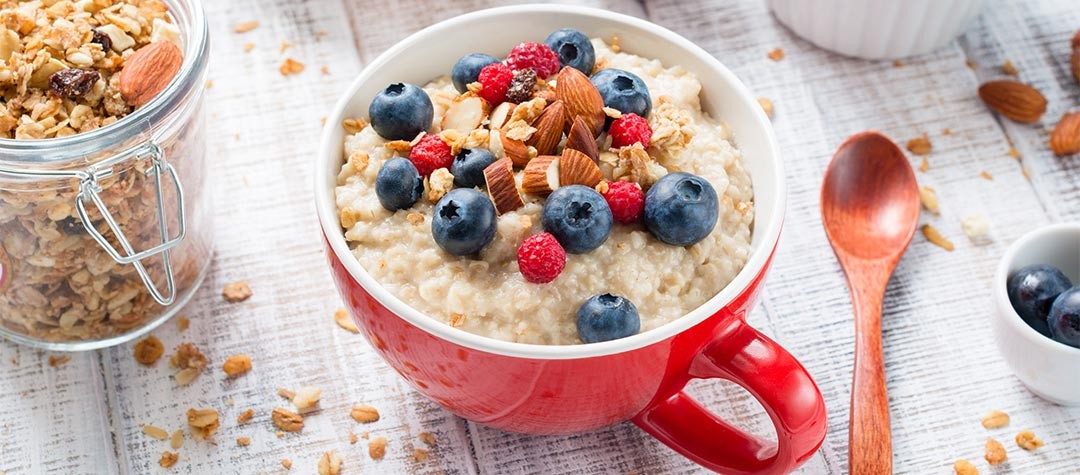Many people underestimate the importance of water, but keeping hydrated before, during and after exercise can significantly benefit your workouts.
Water makes up around 60-75 per cent of your body weight, serving as an important part of your nutrition and wellbeing. Water affects a variety of bodily functions from alertness, appetite, performance, fatigue, body temperature, joints, nutrients, waste, skin, prevention of diseases and the list could go on.
Water is involved in nearly every part of your body and helps the blood flow, encourages chemical reactions in cells, cushions muscles and regulates body temperature. When dehydrated these functions become impaired which can affect the flow of oxygen, performance ability and fatigue which are not only detrimental to your workout but can eventually affect your health.
The average person should be consuming around 2.5 litres for men and 2 litres for women per day...
The average person should be consuming around 2.5 litres (approx 85 fl oz) for men and 2 litres (approx 68 fl oz) for women per day, 70-80% of which should be sourced from water and the remaining from food. However when exercising, you should be conscious of how much water you are losing through sweat and waste, particularly as vigorous exercise can be demanding on your body, if not replaced, a significant loss of water can result in serious implication for your health and performance.
Keeping hydrated however, is more than just drinking more water, as beneficial as water is, it can be quite tasteless and boring. But don’t despair as there is more to hydration than simply picking up an extra bottle of water at the gym and these hydration tips should ensure you get your hydration strategy right whatever activity you are doing.
1. Sports drink alternatives
During exercise, particularly rigorous, our bodies produce sweat for a variety of reasons, mostly to assist the control of body temperature, and through this sweat, electrolytes are lost. Electrolytes are minerals present in the body needed for a variety of purposes such as the catalyzation of chemical reactions, contraction of muscles and even the regulation of water in the body.
Consuming sports drinks can re-hydrate the body by providing these lost electrolytes, unlike water, to help you continue working out. A variety of sports drink, tailored for a range of needs and requirements, are available for your choice assisting energy, recovery and more. If you are concerned about sugar or artificial content, coconut water or homemade sports drinks can serve as a healthy substitute.
2. Food alternatives
Commonly forgotten, food can also provide a substantial source of water for hydration. Products such as fruit and vegetables can be used as a reliable source of both water and electrolytes.
Not only are fruits and vegetables a valuable source of nutrition, minerals and energy, but they also assist your body in staying hydrated and functioning properly. A lot of fruits also contain a high dose of carbs which are essential for long bouts of exercise, therefore serving as a useful pre-workout snack to keep you both fuelled and hydrated.
3. Plan your pre-workout drinks
To ensure you are fully hydrated before your workout, it is best that you avoid caffeinated beverages as they do not hydrate your body in the same way as sports drinks or even water. Planning ahead and preparing drinks before you exercise to be consumed during your workout whilst drinking consistently throughout the day, will ensure hydration before you begin working out, helping your body perform efficiently. Consuming around 500ml (approx 17 fl oz) within the hours precluding a workout or match is ideal to ensure that your body has a sufficient supply of water.
4. Post workout hydration
Your post workout routine is important to replace the nutrients and electrolytes lost and as your body absorbs nutrients most efficiently in the following two hours after exercise, it is beneficial to ensure an adequate consumption of foods and drinks. Carbohydrate drinks such as a recovery smoothie are ideal immediately after exercise to restore both water and energy, as you should be aiming to replace 150 per cent of the body weight lost in sweat with the water consumed after exercise.
Many people ignore the importance of hydration following a workout, as the feelings of relaxation and cooling down create a false sense of restoration, yet the body needs hydration over an extended period after a workout. It is important to alternate between caffeinated and non-caffeinated drinks throughout the day if you require or desire them, but trying calorie free flavoured waters, diluting juices and always keep a bottle of water with you will help you to continually restore your body’s hydration throughout the day.
5. Check the colour of your urine
As disgusting as it sounds, checking the colour of your urine can help determine how dehydrated you are, ensuring that you body has safe levels of fluids. If passing a pale yellow colour then you know your body has plenty of water and is satisfactorily hydrated, if dark however, this is your body telling you that it needs more water and is becoming dehydrated.
Urine strips or charts can be easily accessed and purchased to determine more accurately how dehydrated you are. Urine is your body’s natural reaction to water levels and is a helpful way to catch dehydration at its early stages.
6. Dont ignore a dry mouth
Being aware of your body’s signs of dehydration is essential to keeping your body at its optimum level, as these mechanisms are in place as a warning of when you need more water. Being thirsty or having a dry mouth is one of the first bodily signs that you need to consume more liquids and should not be ignored. Water breaks and just sipping water before, throughout or following a workout can gently restore your system of its water. Whether by water or other types of drinks, this will help you perform more efficiently and avoid the more serious effects of dehydration.
7. Know the symptoms
If your body reaches the more serious levels of dehydration, you can suffer from more negative symptoms such as dizziness, nausea, heart palpitations, weakness and so on, which can have more serious repercussions, not only your exercise but your health. Excessive dehydration can have very negative effects but, is easily prevented by recognising the less severe onset of dehydration and stopping it before it starts.
Educating yourself in more detail of the signs and symptoms of dehydration will make it easier to identify when your body is in need of water, preventing the onset of unwanted symptoms inevitably experienced when not drinking enough water.
8. The ‘pinch test’
One helpful method if you unaware of the early onset signs of dehydration, is the pinch test use to recognise when your body is beginning to run out of water. Skin turgor is a frequently used test to identify when your body is lacking in water, due to a decrease of water in the cells changing the skin's elasticity.
When you grasp the skin on the back of the hand, if the skin returns slowly back to its original position, this indicates a state of dehydration and although not the most accurate test for dehydration, not working for all people, it is a good way to determine the latter stages of dehydration.
9. Drink before meals
Dehydration can frequently be confused for hunger, and although foods do provide some form of water for hydration, if the body is craving water, only fluid based products will suffice to sufficiently replenish your water stores. Drinking a glass of water around 30 minutes before a meal will help your body identify how hungry it is and concentrate on hydrating itself. This is beneficial to keep your body at a healthy water level, not only enhancing your performance but preventing overeating and even helping your waistline. Being dehydrated can also reduce your energy, so hydrating yourself before you refuel before or after a workout will maximise your digestion and increase energy gained.
10. Excessive caffeine and alcohol consumption
It is not only during and after exercise that you need to pay attention to your fluids, but the drinks you consume throughout the entire day can affect dehydration when exercising. Excessive caffeine and alcohol consumption encourage the onset of dehydration, due to their diuretic nature. A diuretic is a product that increases the body’s production of urine by inhibiting the hormone needed for the absorption of water into the blood, this stops the kidneys absorbing the water and so is passed out by urine.
Consumption of such diuretics can result in dehydration, due to the increase of water being released from the body. As enjoyable as alcohol and caffeine can be, when carrying out exercise, particularly that of high intensity in which sweat is released, it is important to avoid alcohol and over-consumption of caffeine. That said, there is some evidence to suggest that consumption of caffeine could aid your running performance.













